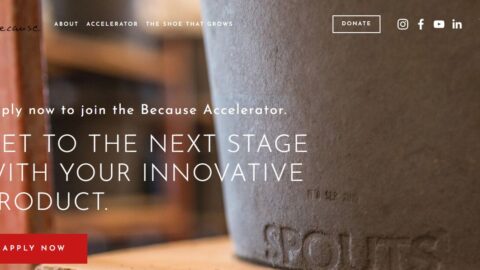Guided by the principle that youth are key actors to achieve peace and prevent violent extremism, UNAOC develops educational programming to enhance the ability of young people and their organizations to foster mutual respect, understanding and long-term positive relationships between peoples of different cultures and religions.
The Young Peacebuilders is a peace education initiative that is designed to support young people in gaining skills that can enhance their positive role in issues of peace and security and in preventing violent conflict. It also brings visibility to the initiatives, actions and projects initiated by young people towards peace and the promotion of diversity and dialogue. As such, it responds to recent international policy recommendations outlined in the United Nations Security Council Resolutions 2250 and 2419 on Youth, Peace and Security and the Secretary-General’s Plan of Action on Preventing Violent Extremism.
UNAOC intends to implement this programme in different regions of the world to grow and strengthen the global movement of young peacebuilders. Through this action, UNAOC is committing to support young people’s participation in peacebuilding with a growing coalition of partners.
AUDIENCE
The programme is intended for young women and young men who are starting their involvement in the field of peacebuilding and intercultural dialogue.
Applicants should be active (staff, volunteer, etc.) in a non-government and non-for-profit youth-led organization, network, initiative or movement (led by youth for the benefit of youth) and have the ability to consult with and reach a wider group of young people, audience or network, including at the grassroots and community level.
Algeria, Bahrain, Djibouti, Egypt, Iran (Islamic Republic of), Israel, Iraq, Jordan, Kuwait, Lebanon, Libya, Morocco, Oman, Qatar, Saudi Arabia, State of Palestine, Syrian Arab Republic, Tunisia, United Arab Emirates, Yemen
Costs covered by the organizers
All selected youth participants will be provided with:
- Round-trip travel (international or domestic flight, economy class) to the city of the face-to-face workshop as well as to the city of the symposium;
- Shared accommodation (double-rooms), with a participant from the same gender, in the city of the workshop and the city of the symposium;
- Meals and coffee breaks during the official duration of the workshop and the symposium;
- Shuttles or reimbursement of transportation to/from the airport and hotel in the city of the face-to-face workshop and city of the symposium.
LEARNING OBJECTIVES
- Learn about negative stereotypes and how to critically analyze them to reduce their prevalence;
- Understand different perspectives in identity-based conflict and gain tools to develop solutions at local, national and regional level and transform conflicts peacefully;
- Identify push and pull factors creating conditions conducive to violent extremism;
- Develop competences to use different forms of media or expressive arts as a way to create alternative narratives, reduce polarization and promote social inclusion;
- Learn how to successfully design and run your project.
Requirements:
This is a call to youth aged 18-25 from MENA wanting to tackle violent extremism by building inclusive societies with understanding and respect among cultural and religious communities
- Are you between 18 and 25 years old? *
- Are you a citizen of a MENA country and do you currently live in this region?
- Are you interested in taking part in an intercultural learning experience with other young people from MENA and improve your actions to promote peace?
- Are you part of a youth-led organization, network or initiative?
- Do you want to increase your ability to contribute to peace and social inclusion in your community, country and region?
- Are you in the beginning stages of your involvement in this type of work and want to learn more?
Programme Component
- Part 1: online phase. Participants access the course through an online collaborative platform. UNAOC and other trainers facilitate the first few modules of the curriculum, giving an opportunity to participants to get to know each other prior to their first in-person meeting. They also start getting exposed to tools and concepts, engage in discussion and start reflecting on their peace actions.
- Part 2: face-to-face workshop. All participants travel to complete the training and experience how peacebuilding is successfully implemented through local field visits.
- Part 3: applied learning. Implementation of a personal peace initiative: participants are guided by UNAOC’s professional trainers and stay connected with other participants through the online platform, while reporting on the implementation of their projects.
- Part 4: results sharing symposium. Participants are invited to participate in a symposium during which they share their experience, lessons learned, achievements and recommendations with a broader audience of practitioners, policy makers, media and the general public.
Tentative timeline
- September 2019: call for applications;
- By November 15, 2019: selected participants are notified;
- December 2019 – February 2020: selected participants take part in introductory online modules (part 1);
- March 2020: participants travel to take part in the face-to-face workshop at a location to be determined (part 2);
- March-June 2020: participants commit to conduct peace activities in the three/four months following the workshop (part 3)
- June-July 2020: Results-sharing symposium at a location to be determined (part 4).
DEADLINE: September 30, 2019
To apply and for more information visit here




